Young children spend lots of time trying to make sense of the immediate world around them. They are naturally curious about what happens throughout the different seasons. They ask questions about the people around them. The immediate locality and the living creatures, animals and plants within provide children with an abundance of stimulus for their play and learning. Children are inquisitive and naturally drawn to explore materials and investigate how things move and work. The World Around Us is an area of learning in the preschool and primary curriculum. It encourages children’s natural curiosity and answers some of their questions about the world from the perspectives of Geography, History, and Science and Technology.
A sample of World Around Us learning intentions that are easily provided outdoors
- Recognise how the weather changes through the seasons
- Become aware of the wide variety of plants and animals in the local environment
- Recognise and understand some of the ways in which things are made to move
- Have an awareness of what makes everyday things work
- Recognise that light and sound come from a variety of sources
- Explore how materials can be changed
- Explore the affordances of digital imagery and technology
Experiences that will support children to develop their understanding of the world around them
Bridge building which developed into an investigation around stability – after a visit to a local bridge, the children were inspired to build their own bridges. This work required a team approach, perseverance and critical thinking in order to make the bridge stable and then to create a slope for spools and vehicles to roll down. The children realised that they could make things travel faster by making the gradient steeper. They added more height to the structure by placing three pallets below the blocks and then continued to test the stability of their bridge and how fast items could travel.
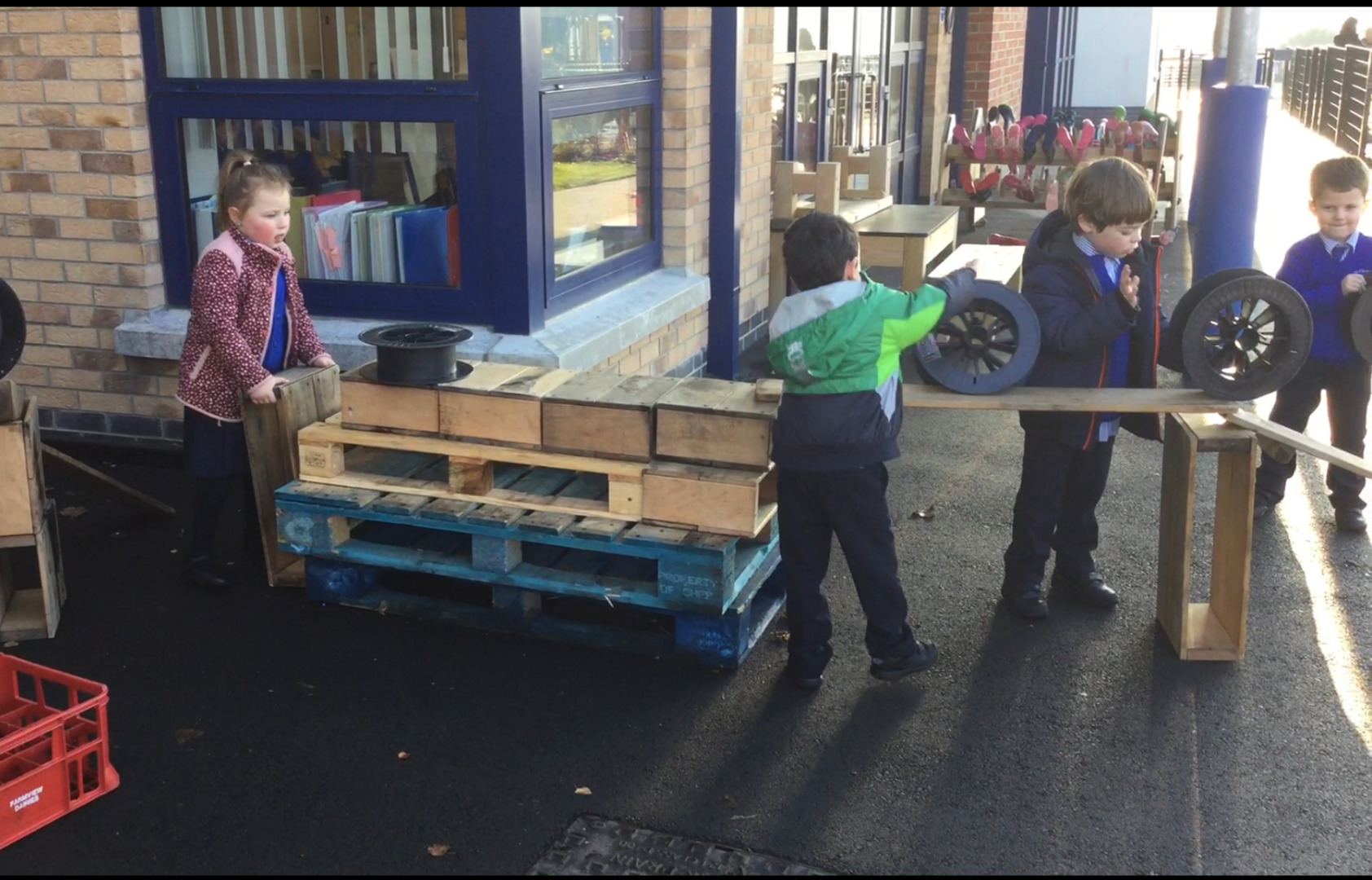
Using digital technology to support and enhance learning – children are encouraged to use cameras and iPads to record images and movies outdoors. Often these images are used indoors to explore project work at a deeper level. The boys here have noticed the reflection of the iPad in the number plate and the chrome strip above. They are moving the camera backwards and forwards to alter the images recorded.
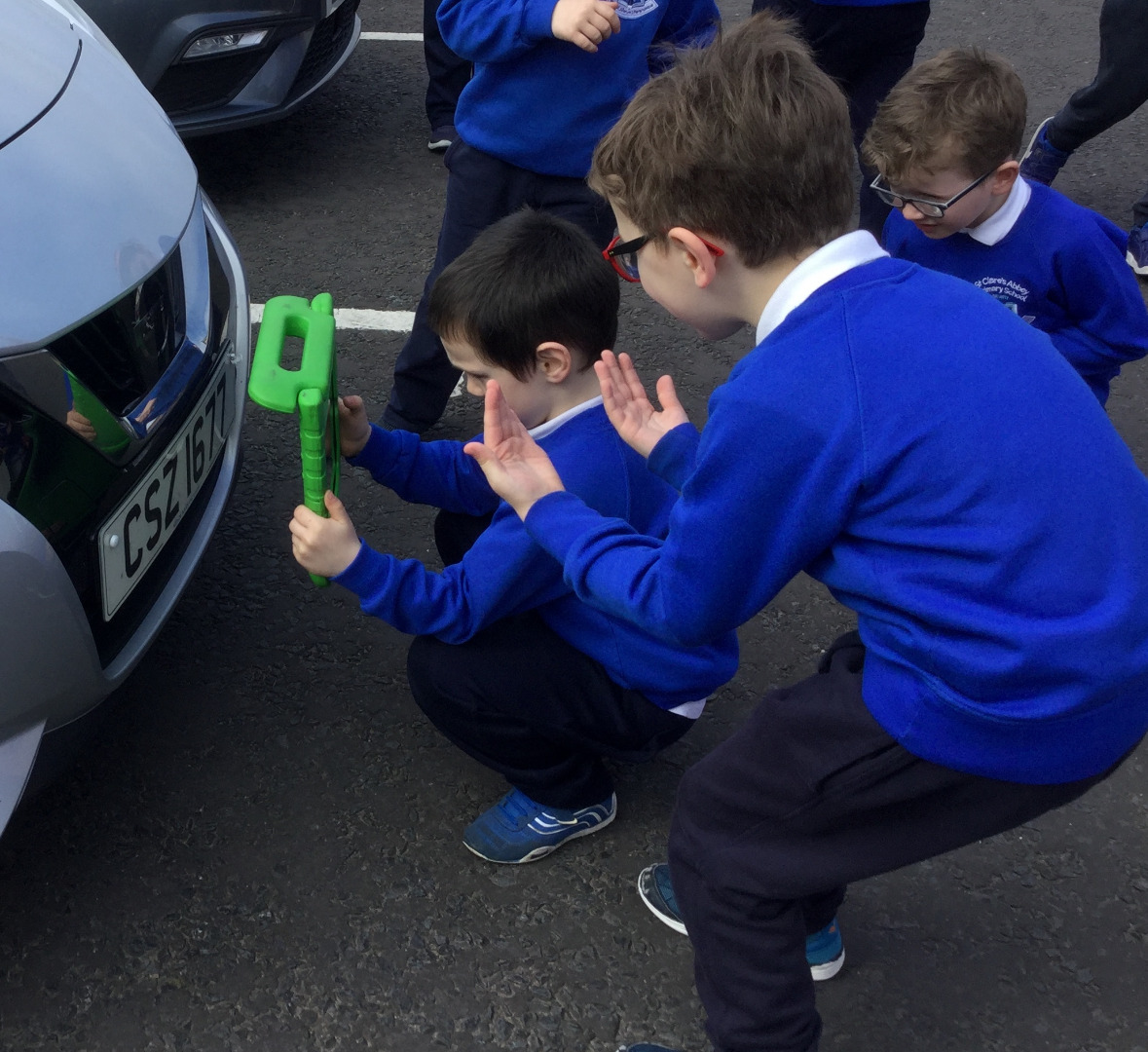
Exploring how water moves – has become a great source of interest as the children discover that water will flow upwards when enough pressure is applied. They also discover that water will naturally flow downhill. Long periods of time are devoted to creating pipe systems for water to travel through. And the greatest pleasure and learning happens when children make these discoveries by themselves. In order to do this, they need time and permission to pursue their own lines of inquiry. Adults need to be flexible and tuned in to children’s thinking so that they can support and extend the learning.

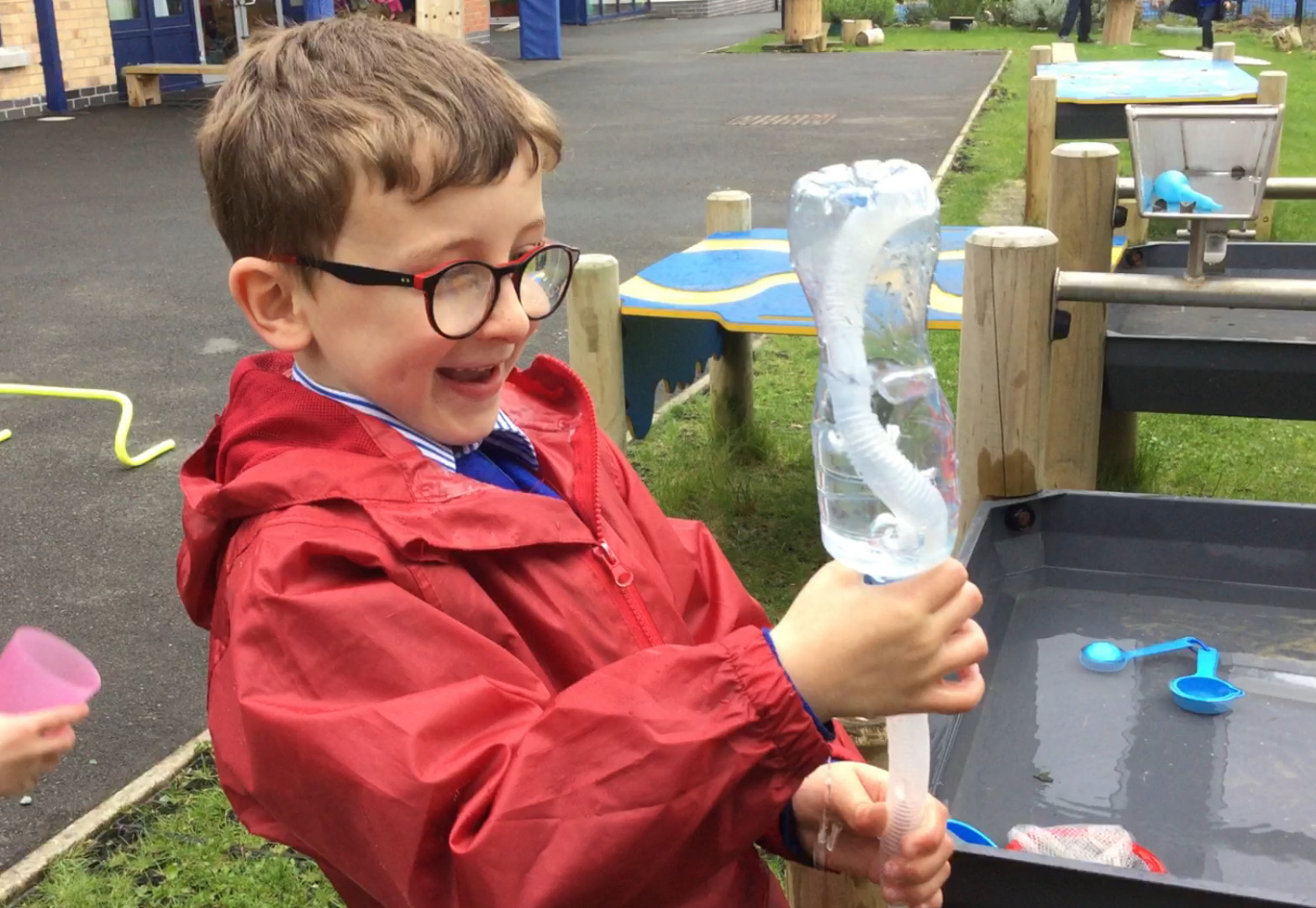
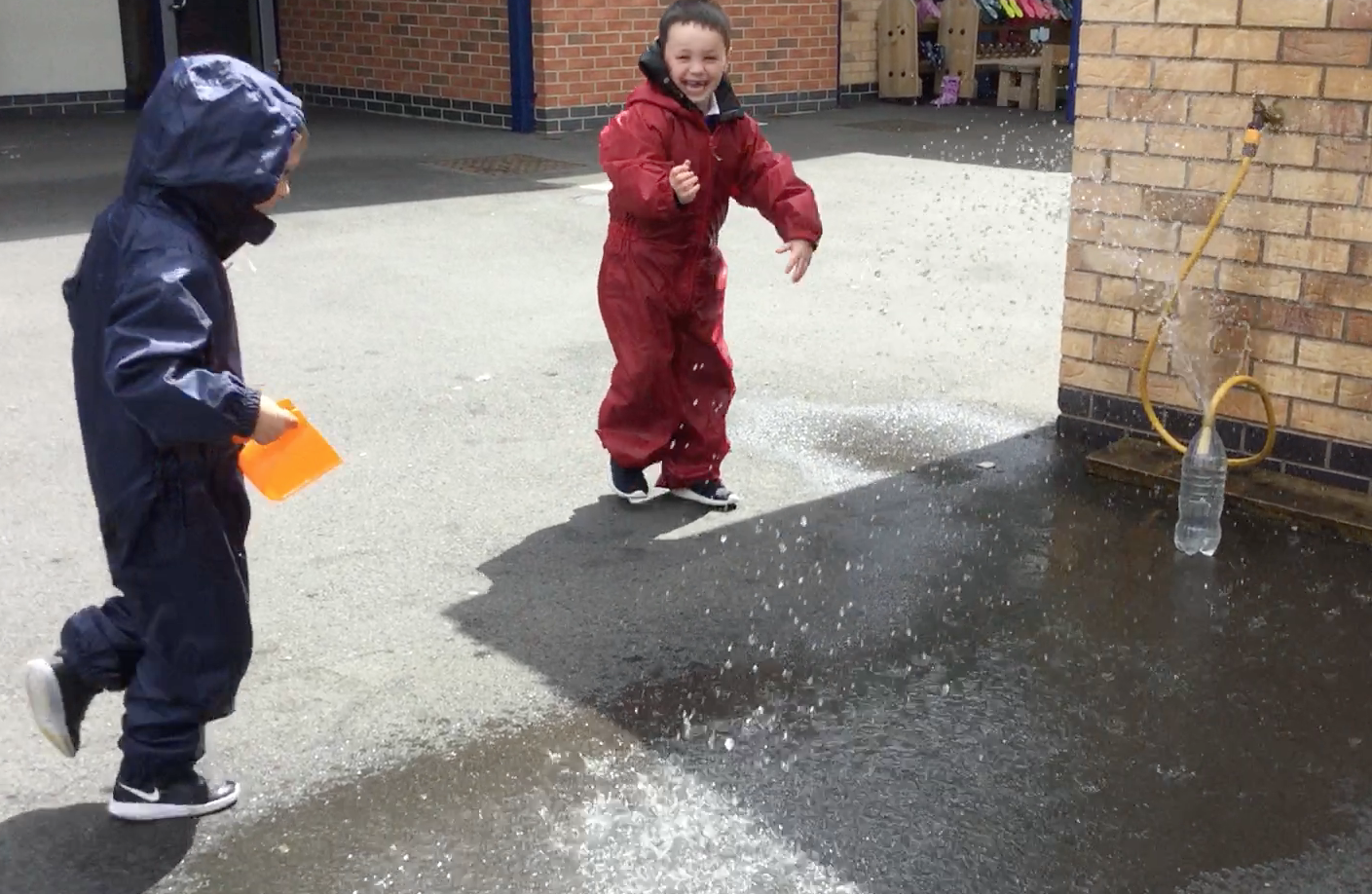
Mixing Sand and Water – has been a firm favourite of many children. They are automatically driven to mix sand and water which is why the outdoors is the best place for this type of investigative play. Children are simply creating a mixture, and will often give this mixture a name depending on what they want it to be; chocolate sauce, soup, porridge, potions, etc. They are also learning that when sand and water are mixed, no reaction actually takes place. Yes, the sand becomes wet but will return to its original state when it dries. The children also discover that sand is heavier than water and that the sand will gradually settle at the bottom of the container. Sand and water play can take place in all sorts of spaces, big or small. The secret is to let children freely mix the two!
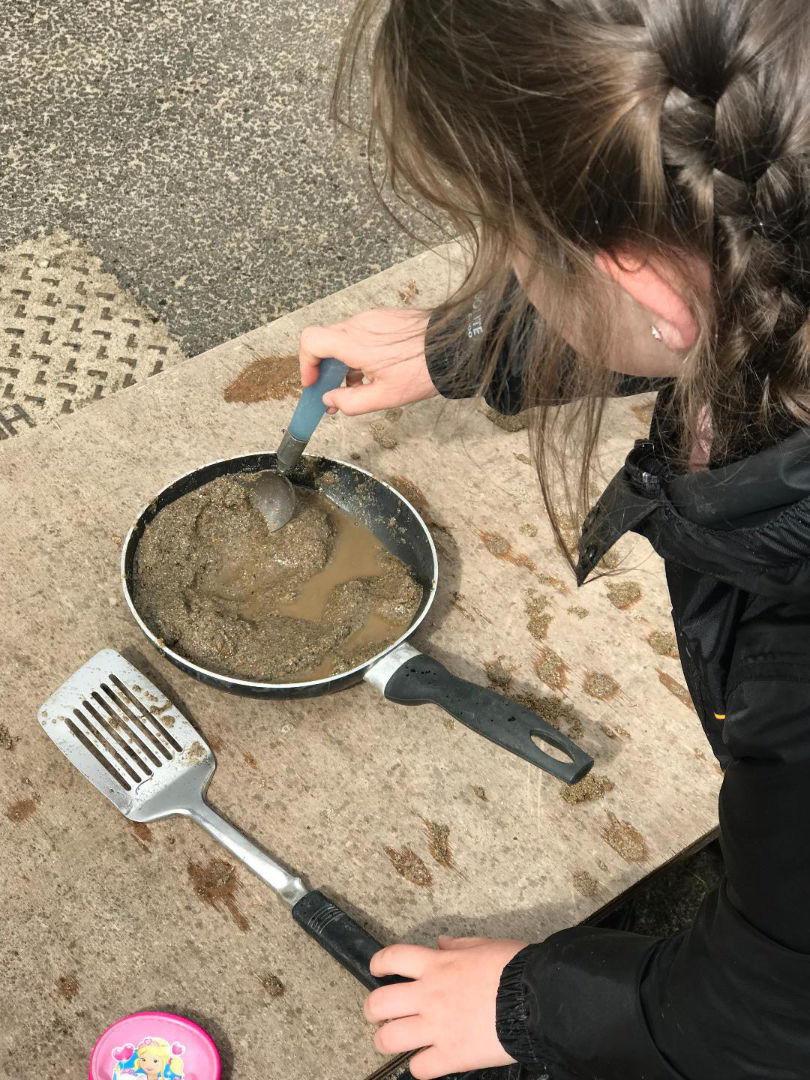
Remember, we are supporting children to explore and learn about the world around them. They should have opportunities to engage in in-depth investigations of phenomena around them worthy of their knowledge and understanding. You can walk 10 minutes in any direction and easily find a stimulus – something that will truly engage children’s minds.